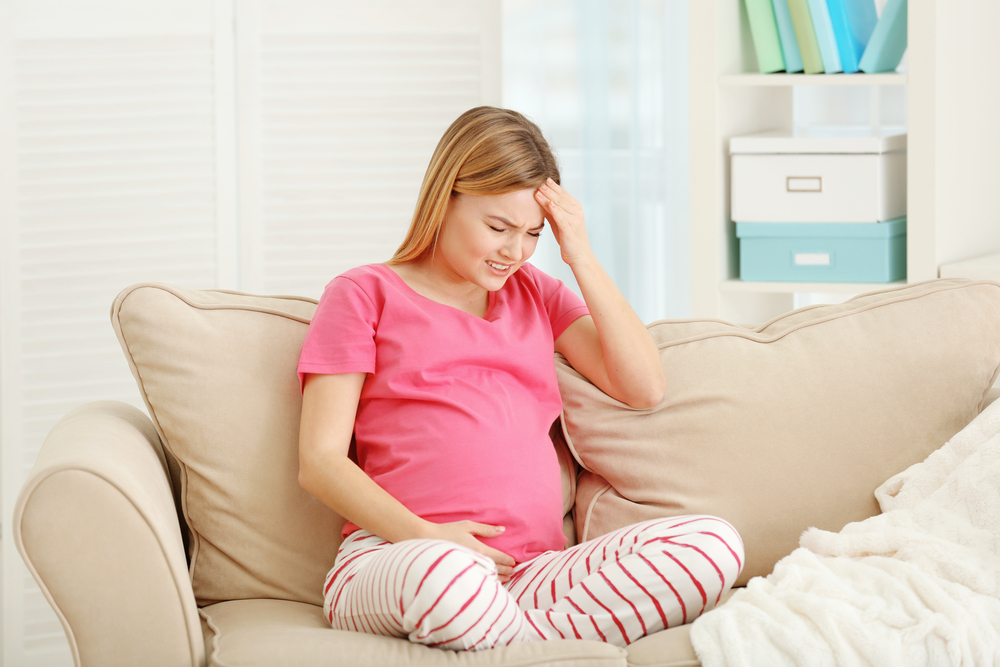Early Pregnancy Cramps and Abdominal Pain

# 1
Pregnant women may experience severe abdominal pain and early pregnancy cramps. Early pregnancy cramps are a major challenge for new moms. You should concern your health care provider if you feel sever pain or cramps during your pregnancy. (Source)
What is abdominal pain?
There are many causes of abdominal pain during pregnancy. Sometimes, these should be normal, and you should not worry about them. Abdominal pain during early pregnancy is due to changes in your body as your body organs are shifting to create space for your baby. Your uterus expands, and belly ligament stretches. Due to all these sudden changes in your body, you feel abdominal pain left side or abdominal pain on the right side. But it always not healthy to ignore. It could be more serious but in rare cases. Upper stomach pain during pregnancy is normal, but low belly pain when pregnant could be a sign of uterine infection or some other causes. Normal abdominal pain could be treated at home with various homemade remedies.

Causes of Abdominal Pain:
Abdominal pain can be caused by many reasons, but main causes are an infection, abnormal growths, inflammation, obstruction or intestinal disorders. Abdominal pain during pregnancy can be a regular part of the process. As your body changes to accommodate your growing baby while there are many harmless causes of abdominal pain in pregnancy. Some pregnant women may experience more severe as an expectant mother. It is important to educate yourself on all potential causes so you can recognize symptoms that may cause concern causes of cramping or abdominal pain during pregnancy.
What are Cramps?
Cramping During Pregnancy typically occurs when the uterus expands causing the ligaments and muscles that support it to stretch. It can be more noticeable when you sneeze cough or change positions during the second trimester.
Causes of Early Pregnancy Cramps:
A common cause of cramping is round ligament pain. The round ligament is a muscle that supports the uterus and when it stretches you may feel a sharp stabbing pain or a dull ache in your lower abdomen. Cramping that is relatively minor and happens now and then is probably nothing to be worried.
- Round Ligament pain:
Some additional causes of normal cramping in pregnancy include round ligament pain. Round Ligament pain can be characterized by a sharp stabbing pain; when you change positions, or it can also be an achy dull lingering pain. The two large ligaments that run from your uterus to your groin usually causes round ligament pain. As the uterus grows, these ligaments are stretched and create discomfort. This pain is reported in the second trimester and considered to be harmless gas during pregnancy.
- Gas During Pregnancy:
The buildup of gas happens whether you are pregnant or not. However, you may discover more challenges with gas once you find that you are pregnant. One of the key contributing factors to experiencing more gas during pregnancy is the increased levels of progesterone. Progesterone is a hormone that causes the muscles throughout your body to relax woman holding her nose due to gas during her pregnancy subsequently. Abdominal muscles during pregnancy relax more which causes your digestion to slow down. The transient time to the intestine can increase by 30%. This allows gas to build up easier and creates bloating burping, and of course, flatulence gas during pregnancy can also increase later in pregnancy. When the enlarged in uterus places pressure on your abdominal cavity common discomforts in addition to those listed above several. Other common abdominal aches can be experienced during pregnancy and are non-threatening your growing uterus. Stomach viruses, kidney stones, fibroid, and food sensitivities are all valid forms of harmless abdominal pain.
What can I do to improve the abdominal pain?
Sometimes a change of position is helpful, lying on the other side, getting up and going for a walk, stretching, and general body movement may help. Having a warm shower, loosening any tight or constrictive clothing or a gentle tummy massage can be useful. Go to the toilet occasionally, a full bladder or bowel can contribute to uterine cramping. Freeing up some space can make all the difference to avoid constipation during pregnancy. These are given below:
- Drink plenty of water
- Eat lots of fresh fruits and vegetables
- Avoid highly processed starchy foods some deep breathing exercises.
- Avoid white bread, rice, and pasta (As it may cause problems with constipation in many women)
- Sit or lie down for a while
- Daily muscles Exercises
- Make a conscious effort to relax muscle
- Apply warm water bottle to prevent abdominal pain
- Take a balanced diet
- Eat fruits and vegetables enriched fiber


